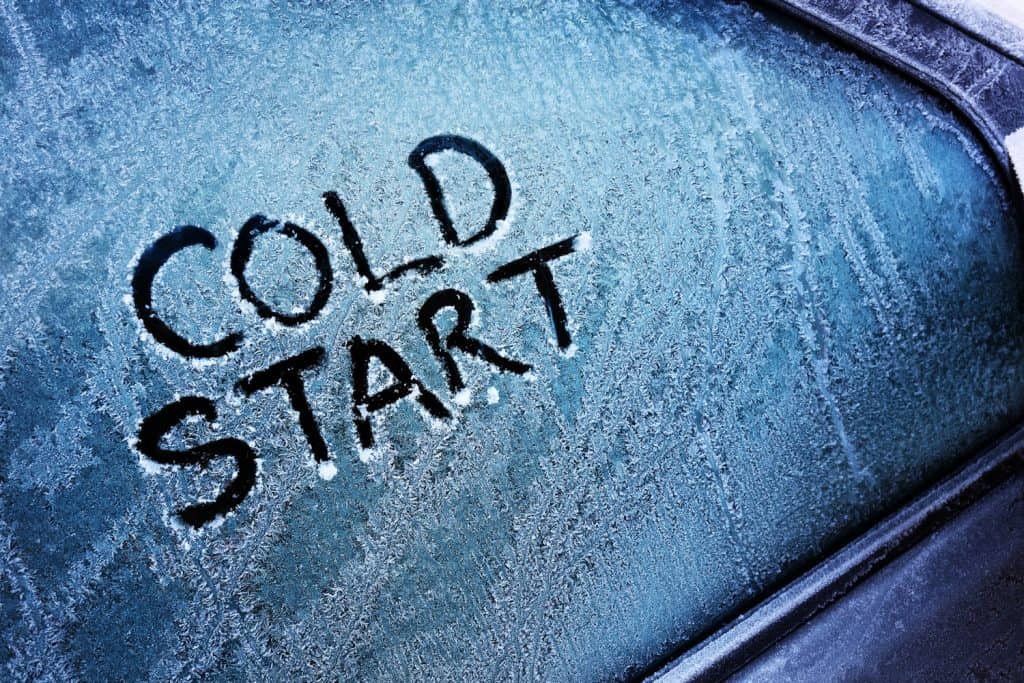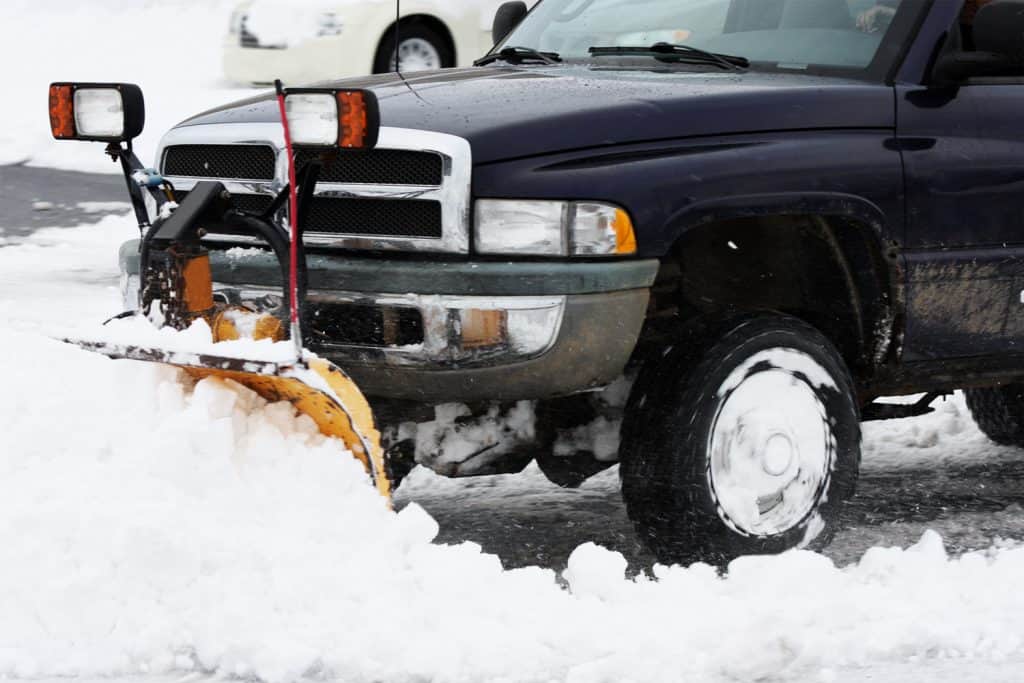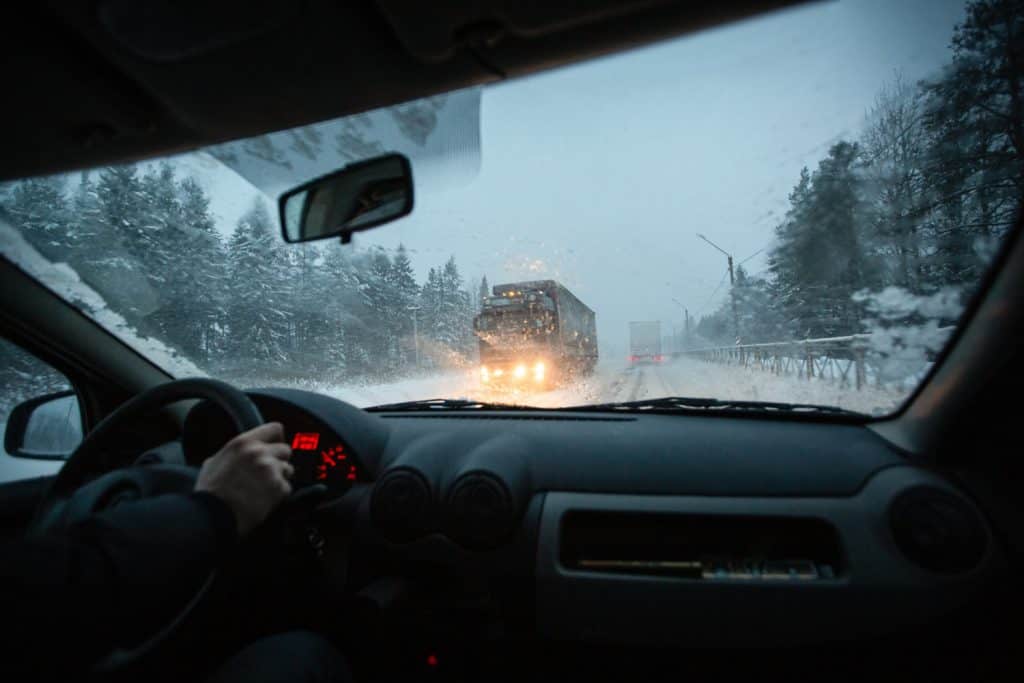Cold weather can cause issues with any diesel vehicle. So if your diesel engine won't start in the cold weather, then what could be wrong? Not to worry, because we have done the research on your behalf to help pinpoint the culprit to this problem!
Since diesel engines do not use spark plugs to ignite the fuel, frigid cold weather can cause issues when trying to start the vehicle.
Diesel fuel thickens when it is cold, so it is essential to let your glow plugs warm before trying to start your diesel engine, or your glow plugs may need to be replaced.
In addition, your diesel engine may not be starting due to the following:
- Bad battery
- Faulty starter
- Fuel filter problems
- Glow plug controls
- Fuel leak in lines
- Worn cold start valve
While cold weather affecting the glow plugs is one of the most common reasons your diesel engine isn't starting, it could also be something else.
In this article, we are going to take a look at the reasons why this is happening. In addition, we will discuss how to ensure you won't have this issue in the future, so read on!

Diesel Engine Won't Start In Cold—What Could Be Wrong?
Cold weather is one of the most common reasons why diesel engines will not start. If your diesel engine doesn't start in cold weather, here are some tips that can help you fix the problem.

Let Your Glow Plugs Warm Up First!
Glow plugs are an integral part of your diesel engine because they help to preheat the engine to get it running. These plugs are electrically operated and have a heating filament inside them that glows red hot when an electrical current is passed through it.
One of the best ways to get your diesel engine to start is to let your glow plugs warm up. You can do this by turning your vehicle in the "on" position, which "burns" off any condensation in the fuel line and helps to get rid of excess water in the system.
Once you have let it sit for a while, try to start the vehicle again. If this doesn't work, then you need to replace the glow plugs.
Check Your Battery And Starter
If it doesn't start after letting your glow plugs warm up, then the battery could be dead. So make sure that you have a fully charged battery in your vehicle before trying to start it again.
Once you've confirmed that the battery is good, the next step would be to check your starter. Since diesel engines are especially vulnerable to cold weather, it is essential to ensure they are securely mounted before trying again.
If you have tried these tips and still can't get your vehicle to start in cold weather, you may need a new glow plug relay or glow plug control module.
Fuel Filter Problems
In addition to glow plugs, the diesel engine needs a steady supply of clean and dry fuel to run smoothly. Bad fuel filters can cause problems for your engine.
It would be best to ensure that the filter is in good condition and not clogged up with dirt or debris before getting it replaced by a professional.
You can check this by taking it out and shaking it. If you can hear dirt moving around inside, it needs to be replaced with a good one immediately.
Glow Plug Controls
Today, many diesel engines are controlled by an electronic glow plug control module part of the instrument cluster near the dashboard. A faulty glow plug controller will cause your vehicle won't start intermittently.
If this is the problem, you must check all the wiring connections and components attached to this module, including your glow plugs.
Check for Leaks
When it comes to diesel engines, sometimes leaks are hard to spot, making them difficult to solve. However, if you suspect there may be an issue with your fuel lines or injection pump leaking diesel fuel into the engine block, this could be the problem.
To check for this issue, switch on your headlights so you can see inside the engine bay. If there is diesel fuel pooled near the injection pump or in the area of your glow plugs, they have a diesel mechanic replace these parts.
In addition to replacing these parts yourself, please take a look at your fuel filters and try replacing them as well.
If you notice any diesel fuel leaks, then get a professional mechanic to diagnose and repair them for you.
Worn Cold Start Valve
If your diesel engine continues to fail in cold weather, you may have a worn cold start valve. This small part is located in your vehicle's air intake and is designed to keep the cold weather from affecting your engine.
If it gets clogged, your vehicle's engine will not be able to warm up and start. To check for this issue, try using an air compressor to blow out the cold start valve.
How cold does it have to be for a diesel not to start?

When the temperature gets below a certain threshold, such as 40 degrees F (5 C), diesel fuel thickens and has more difficulty combusting.
The reason for this is that cold temperatures cause the molecules in the fuel to move more slowly. As a result, the diesel engine will have difficulty starting and running.
The other problem is that diesel fuel cannot flow as efficiently in cold weather either. The difference between gasoline and diesel engines can be attributed primarily to their combustion process and because the diesel engine is air-cooled.
How do you start a diesel car in cold weather?
A block heater is a device that warms the engine block to allow the diesel engine to start. They are typically mounted on or below the engine, and electric blankets can also be used for this purpose.
This device is a heating element that plugs into a standard wall outlet, and it could plug into a 12V power source. A block heater is a lifesaver when it comes to starting a diesel vehicle in below-freezing temperatures.
In addition, turn your vehicle to the "on" position for at least 15 seconds to 30 seconds before starting it. This will give the glow plugs enough time to warm up so your vehicle can start in the cold temperatures.
Is it bad to start a diesel in the cold?
While cold weather can negatively affect the performance of a diesel engine, it is not bad to start your vehicle in below-freezing temperatures if you take the necessary precautions.
Diesel fuel is thicker than gasoline, and the cold weather makes it even harder for them to flow freely. If they can't combust, then your vehicle will not start or run correctly. Also, diesel engines do not perform as well in colder climates because of their air-cooled design.
For this reason, your engine needs more time and heat to reach optimal operating temperatures. Therefore, you should start your diesel truck and let it idle for a couple of minutes to build up heat before driving it.
If you own a car equipped with glow plugs, then warm it until you hear the clicking sound from your engine compartment.
How long does a diesel need to warm up?
It can take around 15-to-20 minutes for diesel to reach optimal operating temperatures if parked outside. Everyone is different in how long they let your diesel idle before driving it. However, the colder it is outside, the longer you should give it to warm up.
Maintain proper oil levels, avoid using the wrong fuel, check your glow plugs and use a block heater when needed. These are the most common causes of diesel engines not starting in cold weather.

How can I make my diesel engine warm up faster?
There are several ways to make your diesel heat up faster in cold weather. First, try using a block heater for at least an hour before starting the engine while it is still frigid outside. Also, give your glow plugs time to warm up before each start.
In addition, parking your vehicle in a garage will make a big difference in your engine warming up faster.
Use fuel additives that help the diesel flow easier when it is cold since you'll have to hold down the accelerator more for the truck to start.
Final Thoughts

Overall, if you are having issues starting your diesel engine in cold temperatures, it can usually be fixed on your own. However, if you have tried warming the glow plugs and using a block heater, you may have more issues such as a starter problem, a fuel line leak, or a bad battery.
If the issue continues, then see a trusted diesel mechanic for a second opinion!
For diesel maintenance guides, check these out:
19 Types Of Diesel Fuel Additives
Is Propane Injection For Diesels Worth It? [A Thorough Discussion]

Thank you for the article on diesel hard starts in cold weather, mine won’t start even at 60 Degrees, so I know i have a problem, maybe injectors having 232 ,000 miles on original ?